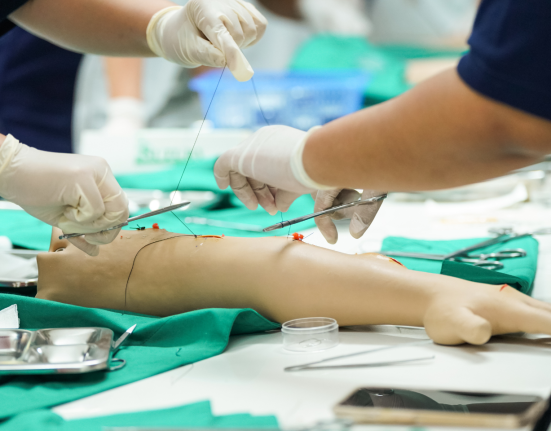Becoming a nurse is demanding, and nursing students face significant challenges. With demanding lectures, intricate skills labs, and the immense responsibility, it’s common to feel that mandatory clinical placements are your sole source of experience before graduation. However, what if nursing students could graduate not just qualified, but confident, connected, and truly experienced? Here’s your guide to building professional prowess while you study.
Your Foundation: Maximising the Mandatory
Those clinical rotations organised by your university aren’t just boxes to tick – they’re your golden ticket. Supervised in government (MOH) hospitals, private institutions, and clinics, these placements are your core. Don’t just drift through them:
- Be Curious, Not Just Compliant: Move beyond tasks. Ask why: “Could you explain why we chose this wound dressing?” or “Could I observe that procedure?” Showing genuine interest transforms you from a shadow into a learner worth investing in.
- Seek Variety (Politely!): Express interest in different specialities during your rotations – ICU, A&E, Paediatrics, Maternity, Theatre. Even a brief exposure broadens your understanding immensely.
- Reflect Deeply: Keep a simple journal. What challenged you today? What skill felt rewarding? What ethical question arose? This isn’t just for assignments; it’s how you internalise learning and grow your professional identity.
- Build Bridges, Not Just Skills: Treat every staff nurse, cleaner, porter, and patient with respect and kindness. Nursing is a team sport. These are your future colleagues and potential references. Reliability and empathy are noticed.
- Ask for Feedback: Don’t wait for end-of-placement reviews. Ask your supervising nurse or lecturer mid-week: “How am I doing with my observations? What could I focus on improving?” It shows initiative and a desire to grow.
Stepping Beyond: Proactively Building Your Profile
This is where nursing students start to shine uniquely. Your degree gives you the licence; these experiences give you the edge:
1. University-Led Initiatives:
- Volunteer: Jump at chances to help with university health screenings (blood pressure, diabetes checks), community outreach programmes, or health talks. It’s practical, looks great on your CV, and builds public communication skills.
- Lead & Share: Become a peer tutor or take a role in your nursing student society. Teaching reinforces your own knowledge and develops leadership – crucial for any staff nurse.
- Explore Research: Assist a lecturer or senior student with a project. Understanding research, even just data collection, makes you a more critical and evidence-based future practitioner.
2. Volunteering:
This is HUGE in Malaysia. Look beyond the hospital walls:
- Established Organisations: St. John Ambulance Malaysia, the Malaysian Red Crescent Society, Hospis Malaysia, or disease-specific NGOs (cancer societies, diabetes associations) desperately need helping hands. You might assist with basic care, health education, event first aid, or community outreach.
- Community Focus: Seek out health fairs or programmes in underserved areas (rural or urban). The context is different, the challenges are real, and the learning about social determinants of health is profound.
- Finding Opportunities: Check MyStarfish, NGOhub, university noticeboards, and social media groups. Ask your lecturers – they often hear of needs!
3. Formal Internships & Industrial Training:
Some programmes have dedicated internship semesters. If yours doesn’t, or you want more:
- Be Proactive: During holidays, target private hospitals (often more flexible than government), reputable clinics, nursing homes, or even corporate health departments. Don’t underestimate roles in medical device companies or pharma (nurse educator support roles exist!).
- Apply Properly: Craft a simple, professional CV and cover letter. Contact HR departments directly. Network! Tell your clinical supervisors, lecturers, and even family you’re seeking holiday experience. Check hospital websites.
4. Conferences & Workshops:
- Attend: Look for events by the Malaysian Nurses Association (MNA), hospitals, or universities. Topics might range from specialised wound care to mental health first aid or updates on national health policies. It keeps you current and shows commitment.
- Volunteer: Often, conferences need student helpers. You get free access, networking opportunities, and behind-the-scenes insight – a fantastic trade-off!
Check out this article for nursing workshops and certifications you should consider.
5. Part-Time Roles:
- Nursing Assistant/Aide: In your final year, with sufficient skills and crucially, after confirming it’s permitted under your student status and Nurses’ Supplementary Register (NSR – arranged by your uni), some private hospitals, nursing homes, or home care agencies hire part-time. Discuss this thoroughly with your faculty first.
- Clinic Assistant/Medical Scribe: Roles in private clinics or diagnostic centres offer exposure to patient flow, basic procedures, and healthcare admin. Less hands-on nursing, but valuable system understanding.
Keeping it Real & Right
- Registration is Key: Ensure you’re properly registered with the Malaysian Nursing Board (MNB) under the NSR before any clinical practice, including placements. Your uni handles this, but stay informed.
- Safety & Scope: Your primary duty is safety – yours and the patient’s. Never perform tasks beyond your competency and supervision level. Know how to raise concerns.
- Insurance: Verify you have adequate professional indemnity insurance, usually provided by your university during placements. Double-check for external volunteering or work.
- Professionalism & Ethics: Uphold the MNB Code of Ethics fiercely. Confidentiality, patient dignity, and integrity are non-negotiable. How you conduct yourself is your professional reputation.
- Language Matters: Fluency in Bahasa Malaysia is essential, especially in government settings and community work. Strong English is vital for accurate documentation, private hospitals, and accessing global knowledge.
- Document Your Journey: Keep your skills logbook meticulously. File certificates from workshops, volunteering, and conferences. This portfolio becomes powerful evidence of your commitment.
Your Journey Starts Now
Gaining standout experience isn’t about doing everything; it’s about being intentional. For nursing students, maximising your placements is crucial – be present, be curious, be kind. Then, choose one or two extra avenues that genuinely interest you. Talk to your lecturers and clinical mentors; they are your best guides in this field. Don’t forget to visit your university’s career centre for tailored advice.
Remember, every interaction, every volunteer shift, every question asked, builds not just your CV, but your confidence, competence, and professional network as a nursing student. By the time you proudly hold that registration as a Staff Nurse, you won’t just be ready – you’ll be sought after. Embrace the journey beyond the textbooks. Your future patients, and your future self, will thank you for it.








